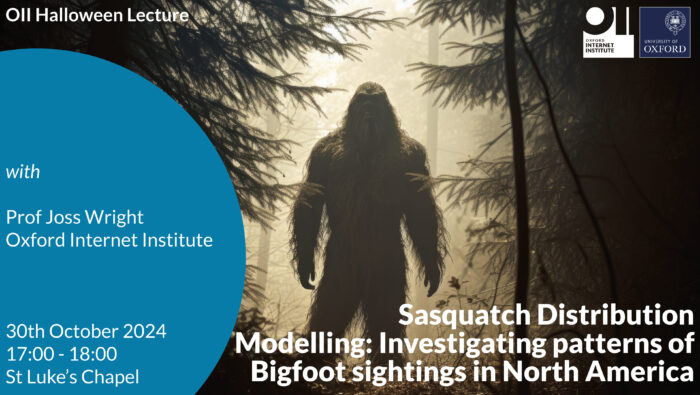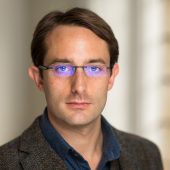17:00 - 18:00,
Wednesday 30 October, 2024
St Luke's Chapel

About
The nights grow ever closer. Streetlights flicker, shrouded in the mists, striving to pierce the gloom. The warm certainties of summer give way to the cold, dark ambiguities of autumn. Rumour, myth, and legend rise, primeval, from the shadowed recesses of our collective consciousness, undermining our faith in the fragile congruities that structure our lives.
As summer surrenders to the inexorable tread of autumn, our resolve falters against the unknown horrors residing in the tenebrous peripheries of the world. As scientists, as scholars, our duty is to cling resolutely to our methods and our ideals in the face of encroaching darkness. Our tools may seem fragile in the face of the seething irrationality of the night, but we are called to peer, however tremulously, wherever our inquiries may lead us.
Lights streak across the sky. Stories are woven of twisted faces in the darkness, half-glimpsed creatures in ancient forests, strange encounters in the wilderness. From the earliest stirrings of humanity, to the patterns of complex arcana that silently control our lives today, folklore and legend have long reported phenomena that rebel against mundane description or understanding. As our technologies evolve, and our ability to collate, scrutinise, and manipulate data spiral beyond all restraint, we are ever more capable, if not indeed obliged, to bring the lens of science to bear on these harrowing mysteries.
To embrace this dark season, you are invited to the annual Oxford Internet Institute Halloween Lecture.
This year we will pursue one of the world’s most notorious cryptozoological phenomena, investigating over a century of data regarding sightings of the Sasquatch, or Bigfoot, of North America. In which regions are these cryptic precursors of humanity most commonly observed? What factors, whether environmental or physical, create habitats most suitable for the Sasquatch to thrive, hidden from the encroaching pressures of humanity? Where, were we bold enough to look, might we seek other populations of these elusive creatures?
In this lecture we will examine some of the history surrounding sightings of Bigfoot, and related cryptids. We will impetuously apply statistical methods to derive underlying patterns from reported sightings, and heedlessly strive to uncover their meaning and implications. What can we learn from the accumulated data about the habits of cryptic species living on the fringes of our world? Is the beast, as ever, closer to us than we wish to believe?
The lecture will be a light-hearted presentation lasting around thirty minutes, openly welcoming informal tangents on any topics of paranormal interest, and followed by a short discussion. Following the lecture, we will reconvene at a nearby pub for those sufficiently brave, or tragically foolhardy, paranormal social scientists who wish to bare their minds and souls to the horrors that gnaw ceaselessly at the tattered fabric of our mundane reality.
Attend Online
